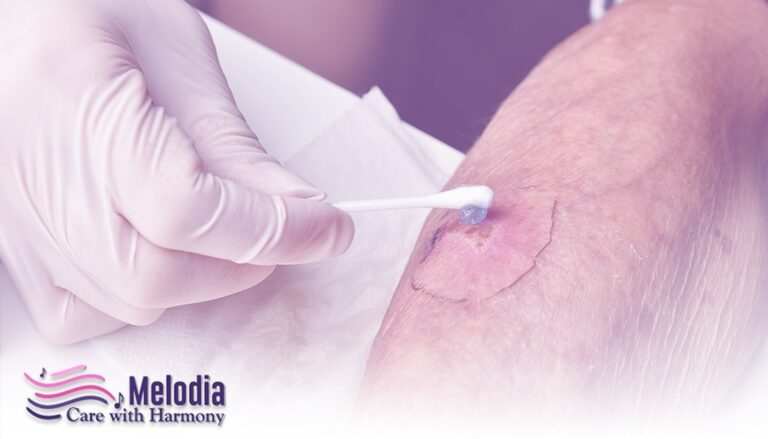Palliative Care In Antioch City, California
Palliative care is a care that is delivered to those who are suffering from a serious disease with the goal of increasing the patient’s quality of life while they are receiving treatment for their sickness. Patients often receive palliative care in addition to their regular therapies and this sort of care is offered to patients of all ages and at any stage of their illness. Palliative care is designed to assist in the relief of disease symptoms, the management of pain levels and the mitigation of adverse effects associated with disease treatment. It can also be utilized to provide emotional, spiritual and physical support to a patient who is struggling with a serious health problem or crisis.
Who Is Eligible For Palliative Care?
A person who is suffering from a life-threatening illness may be eligible for palliative care services. This comprises adults, elderly people and children, among others. Palliative care is not restricted to patients who are towards the end of their lives, as is the case with hospice care but can be used in conjunction with other therapies such as chemotherapy or organ transplantation.
What Is Involved In Palliative Care?
Palliative care involves a holistic approach to treatment and support, focusing on the complete person. You will collaborate with a team of doctors, nurses, counsellors, physical therapists and other experts to evaluate your individual requirements and restrictions once you have been admitted into palliative care. The total care is coordinated by a physician specializing in palliative medicine.
It is possible that palliative care will take on a variety of various forms because it is tailored to the individual and their current care regimen. In the majority of situations, palliative care entails pain medication management, in which the palliative care specialist adjusts the medication dosage in order to minimize suffering while undergoing care or recovering from an illness. Psychological and spiritual assistance in the form of a counsellor or religious clergy member who listens to the patient’s worries and provides comments or advice as needed are also included in palliative care. If you need assistance with duties such as organizing appointments, conducting errands or making arrangements for transportation to your doctor’s office, social workers or volunteers involved in palliative care may be able to help. Home assistants who work in palliative care may be able to relieve caregivers of some of their responsibilities by assisting with routine tasks such as cooking and cleaning. Additionally, your palliative care team can educate family members about your treatment and care options.
The fundamental purpose of palliative care is to alleviate suffering while also assisting the patient in maintaining a high quality of life. Wound care is a significant component of palliative care and it can take many different forms depending on the specific needs of the patient. Melodia Care Hospice is a devoted team of professionals who can provide a comprehensive range of palliative care services, including wound care, spiritual care and aid with other in-home responsibilities.
Assessment Of The Wound

The development of wounds is common over the course of a severe or fatal illness, either as a direct effect of the underlying disease or as a result of the limits imposed by the condition, which make it difficult to avoid sores and abrasions. Patients in hospice and palliative care are more likely than the general population to develop pressure sores, friction wounds and skin tears, particularly if they have limited movement. Patients with specific medical disorders may develop malignant tumors on the skin’s surface, diabetic ulcers and vascular wounds, among other things. Surgical wounds, whether from a scheduled or an emergency procedure, require specialist attention. Different types of wounds necessitate different types of treatment, thus the medical team treating a patient must first analyze the wound before selecting the best course of treatment.
It is not always the goal of palliative wound care to completely heal a wound, as is the case with standard wound care. Instead, the goal is to alleviate the symptoms of the wound and make the patient more comfortable as much as possible. There are some chronic wounds that are not curable, such as those caused by malignancy or ulceration. In other circumstances, full wound recovery may necessitate therapies that the patient’s body is unable to handle at the time, such as surgical intervention. Having a regular wound evaluation performed by the palliative care team allows the team to track the effectiveness of certain wound care strategies.
Illnesses That Seek Care

Individuals suffering from a serious or terminal illness may be more susceptible to wound infections than the general population. It is possible that additional harm will occur as the immune system attempts to develop a defense against infection. A course of antibiotics may be prescribed by a palliative care practitioner to treat infections. In many cases, systemic antibiotics, which are taken orally, are used to treat broad infections and to assist in the prevention of the spread of infection. The use of topical antibiotics, such as gels or cream solutions, for palliative care patients who have a localized infection may be recommended. To keep the wound region covered and protected from future contact to potentially infectious bacteria, topical drugs for wound therapy are sometimes applied directly to a soft bandage that is then secured to the wound.
During palliative care, patients may require another sort of infection therapy, such as debridement. When a doctor or nurse performs this technique, they are removing dead or dying tissue from the wound site in order to show healthier tissue beneath it. Following debridement, the exposed skin is more susceptible to the absorption of topical antibiotics and other drugs.
Pain Management

Pain is frequently associated with wounds and controlling this pain is an important element of palliative care. A patient in palliative care may already be taking pain medication to control the symptoms of their illness but he or she may require additional pain medication during medical procedures such as dressing removal or other operations.
In order to release the adhesive and reduce pain, a palliative care nurse may moisten the region with warm saline before to removing the dressing. It is possible that the medical team will use topical analgesics to temporarily numb the area that is being treated. Many current wound dressings are designed to cause as little stress as possible during removal, therefore they can be used to relieve discomfort.
Wound Odors And Exudate Are Common

The wounds of some palliative care patients secrete fluids or emit scents when they are touched. Exudate from wounds has the potential to cause long-term damage since these fluids often contain enzymes that break down the skin’s cells. Bacteria can also build up in wound fluids, increasing the risk of infection and causing more deterioration of the skin around the edges of the wound, among other things.
The treatment of leaking or malodorous wounds includes decreasing the odor and covering the wound with an absorbent substance to collect any seepage that has occurred. For the dressing over the wound, odor-reducing actions help to reduce odors that might otherwise be present. There is usually a non-sticky layer on the surface of these absorbent dressings that lays directly against the wound in order to reduce harm when the dressing is removed. Changes in dressings may be required on a daily or every few days basis, depending on the severity of seepage.
Managing The Social And Emotional Consequences Of Treatment

Wounds have consequences that go beyond physical discomfort, infection and limited mobility. It is possible for palliative care patients who have wounds to face social and emotional difficulties as a result of their wounds. Depression and anxiety over physical scars might exacerbate the mental stress that already exists as a result of the underlying sickness. Those who have visible scars may experience self-consciousness about their appearance, which may result in social isolation if the patient begins to avoid social situations with friends and relatives. A good palliative care team can assist patients in maintaining their dignity by decreasing the outward look of wounds and removing any odors that may be emanating from them.
Because palliative care is intended to treat the whole person, your care team would address both the emotional effects of the wound and the physical symptoms of the wound. Patient counselling, which allows the patient to discuss issues with a qualified therapist and palliative care practitioners who provide companionship and social interaction for patients in their own homes are examples of palliative care.
Prevention Of Wounds

When it comes to palliative care, wound prevention is just as important as wound treatment. Patients who spend the majority of their time in bed or in a chair are more likely to acquire pressure wounds than other patients. If you are at risk for this type of injury, it may be necessary to change your position frequently. The use of special pillows, foam supports and elbow guards can help to relieve pressure and reduce friction, which can result in abrasions.
Excessive dryness or dampness might make the skin more prone to sores and irritation. Preventative measures may include evaluating the condition of the skin and administering moisturizers or medicinal lotions to the affected area. Patients who perspire excessively may require frequent changes of clothing or bed linens in order to avoid moisture buildup, which can lead to development of ulcers in the affected areas of the body. Patients in palliative care who have incontinence may be at risk of developing sores as a result of excessive moisture and the accumulation of feces or urine. Home health aides can assist with personal toileting and bathing in order to limit the danger of waste accumulation and infection in the home. In a hospice or palliative care setting, no matter what type of injury has occurred, palliative wound care can help alleviate suffering and improve the overall quality of life for the patient and family. Melodia Care’s palliative care team includes wound cleaning and pain management as part of your entire care plan, starting with an initial examination and continuing through wound cleaning and pain management.
Choosing Palliative Care

The decision to receive palliative care is not an all-or-nothing proposition. This sort of care is highly individualized, which means you can choose to receive assistance with certain elements of your disease or receive all-encompassing aid with daily living chores during your rehabilitation.
If you choose palliative care, you are not required to give up on your battle against your illness or on exploring treatment choices. This sort of care is used in conjunction with other types of care and your palliative care doctor can collaborate with the medical team that is delivering your treatment to ensure that you have all of the support you require.
During the course of getting palliative care in addition to regular medical treatments, a patient has the opportunity to establish specific goals, values and long-term priorities for their care. For some patients, this may entail devising a strategy for transitioning into hospice care after undergoing therapy for a specified period of time. Others may choose to seek out alternative treatments, continue with treatment indefinitely in order to prolong life or participate in clinical studies to see if they can improve their situation. Your palliative care team can aid you in choosing the course that is most comfortable for you by assisting you with plans to extend or terminate certain treatments.
You can reach us at any time of day or night by contacting us through our 24/7 online customer support chat or by calling 1-888 635-6347 (MELODI-7).
